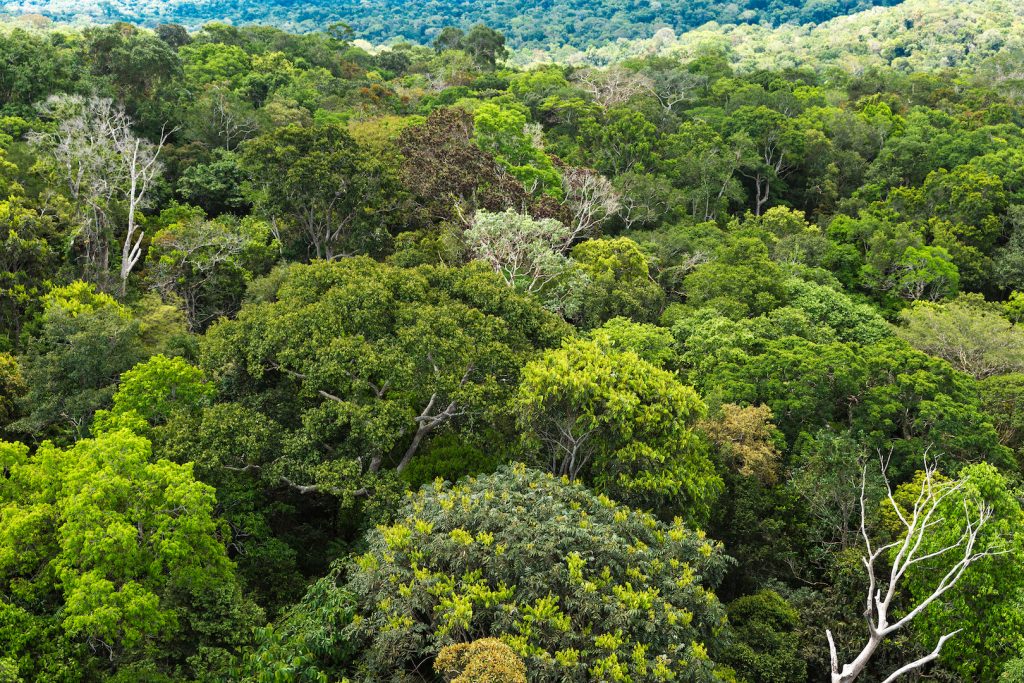Why are we studying tropical forests?

Tropical forests cover less than 7% of Earth’s surface but exchange vast amounts of CO2, water, and energy with the atmosphere. They are the world’s most important land-based carbon sinks, helping to regulate global temperatures. However, scientists are uncertain how tropical forests will respond to rising temperatures and a changing atmosphere, and if they will continue to act as a net carbon sink over the coming decades. Understanding the responses of tropical forests to global changes is critical for improving model projections of future environmental conditions.
What is NGEE-Tropics?
The Next-Generation Ecosystem Experiments–Tropics, or NGEE-Tropics, is a decadal, multi-institutional project funded by the U.S. Department of Energy (DOE), Office of Science, Office of Biological and Environmental Research (BER). NGEE-Tropics aims to fill the critical gaps in knowledge of tropical forest-atmospheric system interactions. The overarching goal of NGEE-Tropics is to develop a predictive understanding of how tropical forest carbon balance and Earth system feedbacks will respond to changing environmental drivers over the 21st Century.
 During Phases 1 and 2 of NGEE–Tropics, we assessed what is known about tropical forest ecosystems and how well these processes are represented in Earth system models (ESMs). Uncertainty assessments as well as field and laboratory studies provided new, high-priority data for forest ecosystem models. Several initial field studies were undertaken at key sites, including pilot studies in Brazil, Panama, and Puerto Rico, and a select group of ForestGEO sites across the tropics. Measurements at these sites addressed:
During Phases 1 and 2 of NGEE–Tropics, we assessed what is known about tropical forest ecosystems and how well these processes are represented in Earth system models (ESMs). Uncertainty assessments as well as field and laboratory studies provided new, high-priority data for forest ecosystem models. Several initial field studies were undertaken at key sites, including pilot studies in Brazil, Panama, and Puerto Rico, and a select group of ForestGEO sites across the tropics. Measurements at these sites addressed:
• Forest carbon cycle−hydrology interactions
• Nutrient limitations in tropical secondary forests
• Plant functional diversity response to climate change
• Regional variation in the causes of tree mortality
The overarching goal of NGEE-Tropics is to develop a predictive understanding of how tropical forest carbon balance and Earth system feedbacks will respond to changing environmental drivers over the 21st Century.
NGEE-Tropics’ grand deliverable is a representative, process-rich tropical forest ecosystem model, extending from bedrock to the top of the vegetative canopy-atmosphere interface, in which the evolution and feedbacks of tropical ecosystems can be modeled at the scale and resolution of a next-generation Earth System Model grid cell (~10 x 10 km2 grid size).